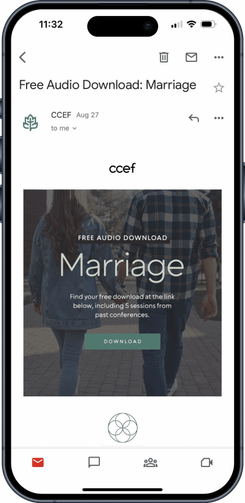This is part 2 of a 6 part series: Part 1 | Part 3 | Part 4 | Part 5 | Part 6
When Hope Hurts
In class this week we were reflecting on just how important it is to give struggling couples hope. Marriage counseling is hard work and couples need hope to stay the course. Good news for biblical counselors, right? After all, the Bible is full of reasons for hope. But here’s where a natural strength can become a potential weakness. Of course, pointing couples to the love and power of Christ is the surest hope that we could ever offer, but we must be mindful of how it’s done. It’s possible to deliver even that wonderful hope in a clumsy way that actually does more harm than good.
Proverbs 25:20 warns potential hope-givers, “Like one who takes away a garment on a cold day, or like vinegar poured on soda, is one who sings songs to a heavy heart.” Imagine you’ve been listening to a couple share their story of heartbreak and desperation for nearly an hour and suddenly, realizing that you’ve got to wrap up your time with them in five minutes, you shift gears – time to give them some hope. You share a verse and a few words of assurance about God’s love and care for them. You can see that your efforts fall flat. In fact, they seem a little irritated. The comfort that they received through the entire session from just being heard, from knowing that you understand, from hearing your compassion and concern has been snatched away like a garment removed on a cold day. Suddenly they don’t feel very understood at all. In fact, it seems like you’re not taking their problems seriously. It’s not that they don’t believe God loves them, but it just came across as a pat answer, tagged onto the end of the session – and it was. You made it sound too simple. It felt like they just shared how their lives are falling apart and your response was to hum a few bars of The sun will come out tomorrow. How do I know it can feel that way? Because I’ve done it and counselees have mercifully let me know how it affects them.
Keep this in mind: Hope isn’t something to be tagged onto the end of your counseling but woven throughout. Sure, we need to focus specifically on giving hope at times, but any time you love wisely and well, you will be offering your counselees hope. Any time you are listening carefully to a spouse that has felt unheard, you are giving hope. Any time you show sympathy and concern for a spouse who has felt neglected and ignored, you are giving hope. Any time that you rejoice with those who rejoice and weep with those who weep, you are giving hope. To be loved well is to have hope.
This is part two of a six part series: Part 1 | Part 3 | Part 4 | Part 5 | Part 6


